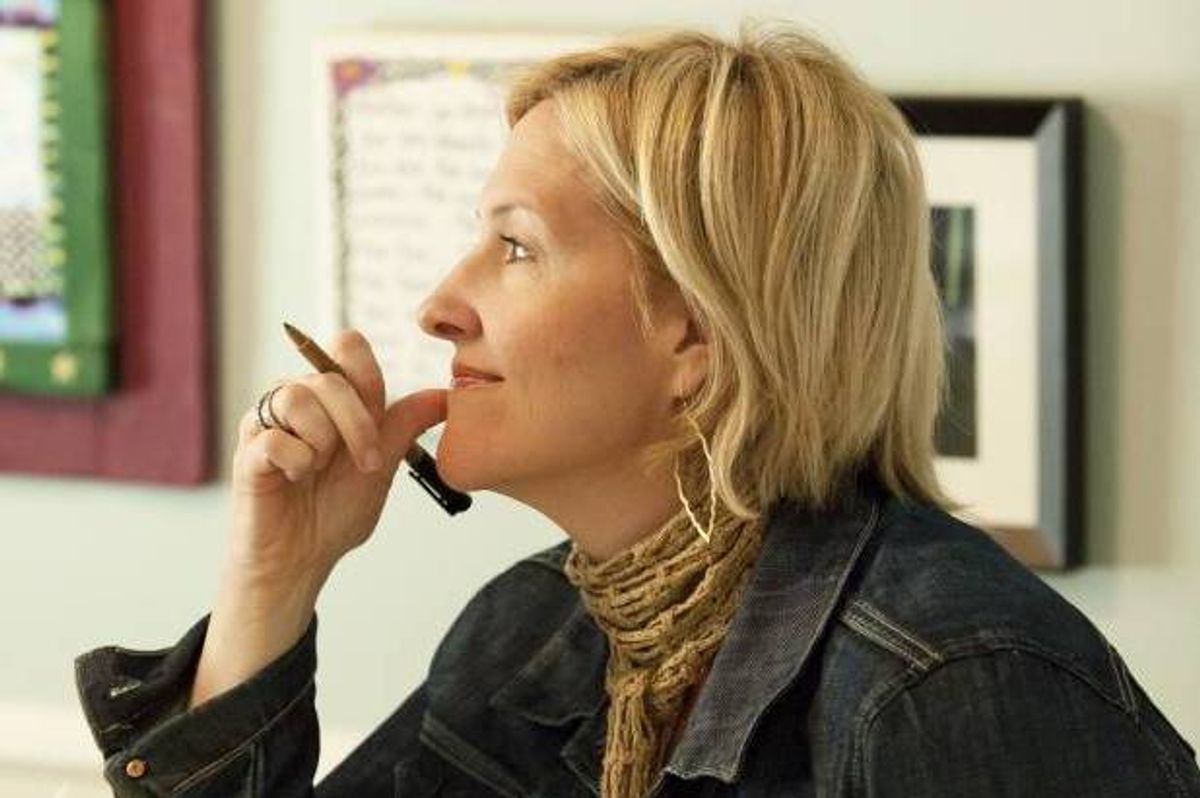It's been more than five years since author and researcher Brene Brown gave her riveting TED talk on "The Power of Vulnerability." Her plea for an embrace of authentic experience and a move away from a culture of snark and shaming has been viewed more than 21 million times. Since then she has written bestsellers — including 2012's rich and wise "Daring Greatly." Now, she's taking on the difficult — and inevitable — human experience of falling down, messing up and struggling. In her new book "Rising Strong," Brown explores the ways in which we have to "compost failure" so we move past it. It's not easy stuff — as one person she quotes put it, "You have to face the pain. You simply have to hurt." If you're looking for quick fixes, sorry. The payoff, however, as Brown reveals it, is worth it — the joy of connection and curiosity.
Salon spoke to Brown recently via phone about her latest project, and why, even in a cultural moment of peak shaming, we've got reason to hope.
Okay, so help me not be completely depressed. In spite of all the attention and support for your message on the power of vulnerability, the world seems just as mean as ever. How do you stay on message? Do you feel there's hope? Do you feel things have changed for better or worse in the past few years?
Looking through the eyes of a parent thinking about the world we're launching our children into, I have never felt so confident in the goodness of people -- and so scared about the state of the world. The big piece for me is that in my everyday interaction with people — not just as a researcher — I see a revived goodness in people. I see people yearning to be connected. And then I hear a lot of loud BS from people who have grabbed the attention of the media and the public. That's where I don't see the discourse.
I think we are getting to a place where community is coming back. I'm trying to figure out if I'm just in that place where I want to believe. But if I have to believe what's in front of me, then I have to believe people are just good. I'm talking about the silent majority across both sides of the aisle; I think we're living and trying to be kind to each other. What has really just tanked is the national dialogue.
We have such an almost repulsion around failure in our culture. It's a tough topic. Every picture is photoshopped, every Facebook update is positive. I see Instagram pictures from the top of a mountain, but I don't see a lot of, "It was so hard to climb here and the altitude is hitting me hard." Do you feel struggle is a taboo?
I do think that we have somehow, in our pursuit of comfort and happiness, shifted a lot of value to fun, fast and easy. But it's counterfeit value. The amount of energy it takes to live a life where you never fall down is so much. We're enamored of grit, tenacity, courage, and perseverance, I think because they're so rare. They're truth.
We have a sign in our house that says, "We do hard things." We're going to be called upon to do hard things. We can weather disappointment. I think people are desperate for that. I think they want to believe they're brave and they want to be brave, but what they don't understand is how difficult it is. There's this cultural obsession with happy and comfortable. But what we really respect are people who can have tough conversations and get things done. In order to do that, we have to be very awake to our emotional lives.
You wrestle with some very contradictory concepts in this new book, including the observation that "So many of us are good at giving help but not at receiving it." And you talk about how compassionate people have clear boundaries. I think a lot of us — especially women — struggle with these ideas. We feel like we have to give limitlessly, and that's not actually healthy. There's a concept you introduce that I really love — the capacity to receive. How do we get it?
I think it's very hard. And when I say no, I do worry some of my girlfriends are going to think, "God, you're such an a-hole." But we do not treat people well when they're walking all over us. We do not treat people well when we're in resentment. The most compassionate people I've interviewed are the most clear about what is and is not okay. A boundary is just saying what is and is not okay. It is an act of compassion to love yourself.
You say in the book, "We've pathologized grief and turned it into something to cure or get over." I see people who talk about either their own tough experiences or those of others by saying, "Well, now we can put it behind us. Now we can go back to normal." I had a friend tell me recently she can't wait to forget something hard she went through this year. I get that it sucked, but why would she want to forget it? How do we deal with the desire to forget when remembering and using what we've learned is so important?
The minute you orphan that story, it owns you. It defines you the minute you do that, and then you consciously or unconsciously work your life around it. When you do differently, you become the author of it. I think what happens when people forget is that they haven't given themselves permission to take control of their narrative. You have feel that emotion. Courage is so contagious, and when we own it and lean fully into it, we change other people around us.

Shares